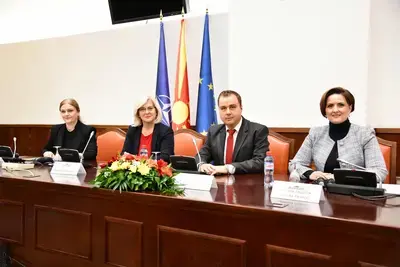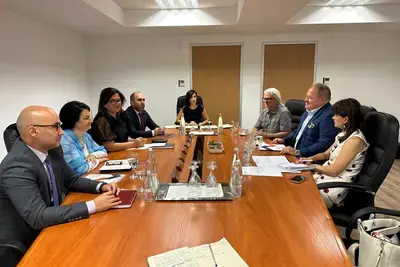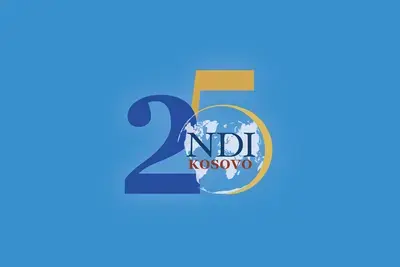Success Story
NDI Research in Albania Finds That Economy is Top Priority
Participants in a new focus group research study, conducted by NDI, largely think their country is headed in the wrong direction, listing unemployment, rising prices, stagnant salaries and corruption as having a major impact on their quality of life.
However, the European Commission’s conditional recommendation to offer Albania candidacy status for EU accession is viewed by some participants as a sign of optimism and improvements, and a main indication for some that the country is on the right track.
The report draws on 10 focus groups held in the Tirana, Shkodër, Fier and Korçë regions of Albania from Oct. 10-18. The research found that participants in the focus group have a clear understanding of what they want - a future where laws are respected, rules are applied fairly to everyone, living standards are higher, and a system of values honored. They said that the country’s political system falls far short of their expectations and fails to address their most basic needs. They especially lament the distance they feel between themselves and politicians, and they want all politicians to demonstrate a better understanding of citizens’ problems.
Other key findings include:
- Despite participants’ overall bleak characterizations of the country’s economic situation, many, including those who asserted that the country is headed in the wrong direction, acknowledged positive developments in the last few years, pointing to improvements in road infrastructure, schools and electricity supply.
- A majority of participants blamed “those in power” for the dismal economic situation, as it represents “the most pressing issue of their daily lives.” Governing authorities also get particularly low marks on job creation and the fight against corruption.
- Corruption is perceived to be an integral part of citizens’ everyday life, often regarded as “a necessary tool” to get things done. Almost all focus groups participants were able to tell a personal story about having to bribe a policeman, nurse, teacher or other public employee to access basic services. However, a number of participants also recognized that their own behavior contributed to the perpetuation of corruption, as they very often resort to bribes or “friends” in order to “get things done.” They see the solution in the full and fair implementation of laws, under which all people are treated equally regardless of their positions or personal and/or political connections.
- Participants largely agree that women are underrepresented in Albanian politics and express willingness to see more women engaged in public life. For many participants, political discourse would become more constructive and ethical if there were more women in politics. However, participants point to pervasive gender inequality throughout society, conservative views among the public, the aggressive character of Albanian politics, and male dominance in political leadership as key obstacles to women in politics.
- While participants agreed that politics has a major impact on their everyday life, they feel largely disconnected from their elected representatives and bemoan the meager interaction politicians have with their communities outside of electoral periods. Participants believe that politicians have failed to show genuine interest in people’s everyday problems and have almost always disappointed them by breaking their electoral promises. They appealed to politicians to demonstrate better understanding of their concerns and asked for more accountability for promises given and decisions made.
The research aims to identify and communicate citizen concerns to political leaders in advance of general elections scheduled for June 23, 2013, to serve as a resource to be used in shaping policies and platforms that are responsive to voters. Focus groups are semi-structured group discussions that seek to develop insight and direction, rather than quantitatively precise or absolute measures. The interaction between participants in a focus group provides insight into how citizens think and feel and is used to understand why those attitudes exist.
The focus group research was conducted in partnership with IDRA Research & Consulting and was funded by the National Endowment for Democracy (NED).
Read more:
Published Dec. 27, 2012



